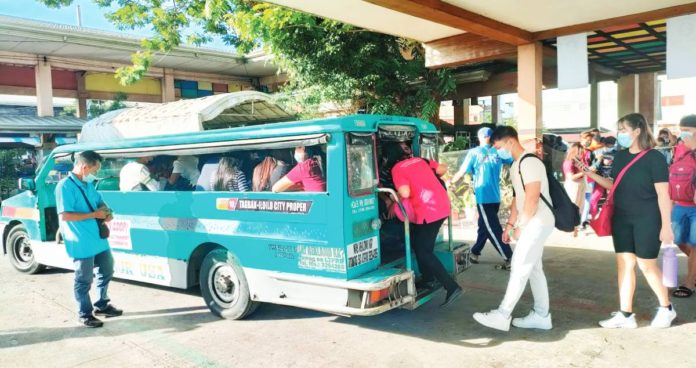
ILOILO City – The Land Transportation Franchising and Regulatory Board (LTFRB) says the decision is final: all non-consolidated traditional jeepney units will be prohibited from operating starting Jan. 1, 2024.
This decision follows the issuance of Memorandum Circular No. 2023-051 on Dec. 14 by LTFRB chairperson Atty. Teofilo Guadiz III. It focuses on the operations of consolidated transport service entities in all routes with applications for consolidation filed on or before Dec. 31, 2023.
The jeepney started as remodeled army vehicles left behind by US forces after World War II, and became a showcase of Filipino ingenuity and resourcefulness. Mainly patronized by low- to middle-income passengers, it has become the core of Philippine public transport.
LTFRB Region 6 legal counsel and spokesperson Atty. Salvador Altura said that guidelines from the LTFRB central office now prohibit non-consolidated traditional jeepney units from operating after Dec. 31.
“This is final, as it has been formalized following earlier statements from the President,” Altura told Panay News.
The memorandum circular highlights the need to clarify the conditions of the Provisional Authority after Dec. 31, 2023, following nationwide public consultations and transport forums under the Public Utility Vehicle Modernization Program (PUVMP).
The modernization of Philippine public transport aims to minimize air pollution and improve public transport safety.
Most jeepneys were not compliant with smoke emission standards.
The guidelines issued in the circular are:
1. For Consolidation: All consolidated Transport Service Entities (TSEs) and individual operators with applications for consolidation filed on or before Dec. 31, 2023, will continue to operate under their existing Provisional Authority (PA). This PA is valid until Dec. 31, 2024, or upon the issuance of a Certificate of Public Convenience (CPC), whichever comes first.
2. Without Consolidation: On routes without consolidated TSEs, all PAs issued to individual operators will be deemed revoked effective Jan. 1, 2024. The units authorized will not be confirmed for registration as public utility vehicles.
A show cause order will be issued in compliance with the amended Public Service Act. To ensure an adequate supply of public transport on these routes, separate guidelines will be issued by the Board.
Altura also said that all LTFRB regional offices are open every Saturday in December to cater to those wishing to join cooperatives or corporations.
LTFRB has simplified the requirements for joining cooperatives and corporations, requiring only a copy of the vehicle’s OR/CR (Official Receipt / Certificate of Registration) and proof of Filipino citizenship.
Other requirements can be submitted at next year’s scheduled hearings.
Altura emphasized that it is advisable for individual operators and drivers in areas with an approved Local Public Transport Route Plan (LPTRP), like Iloilo City and Bacolod City, to join existing cooperatives or corporations, as the number of units per route has already been awarded.
Joining an existing cooperative or corporation has the advantage of receiving a daily dividend of P500, even if they do not receive a modernized unit.
In provinces without an approved LPTRP, such as Iloilo, Negros Occidental, Antique, Guimaras, Capiz, and Aklan, individual operators and drivers still have the opportunity to create cooperatives or corporations before Dec. 31 and avail themselves of modernized units, as the number of units per route has not yet been awarded.
Altura advised all individual operators and drivers to temporarily join a transport cooperative or corporation to ensure their operations continue from Jan. 1, 2024.
“Joining is encouraged, and any disagreements with the cooperative or corporation’s policies can be addressed later. The priority is to ensure continued operations,” Altura said.
It is understood from Altura that only traditional jeepneys consolidated on or before Dec. 31, 2023, will be permitted to operate from Jan. 1, 2024.
LTFRB Region 6 is currently awaiting guidelines on how to distinguish between consolidated and non-consolidated traditional jeepneys.
Altura assures that the region is prepared to cater to passengers from Jan. 1, 2024 even without the operation of individual traditional jeepneys.
According to LTFRB-6 data, 60 to 70 percent of traditional jeepneys in the region have already been consolidated, with the majority of non-consolidated units coming from Bacolod City.
The high number of unconsolidated units in Bacolod City is believed to be due to strong opposition to the modernization program.
In Iloilo City, out of 2,500 traditional jeepneys, less than 500 have not been consolidated./PN



